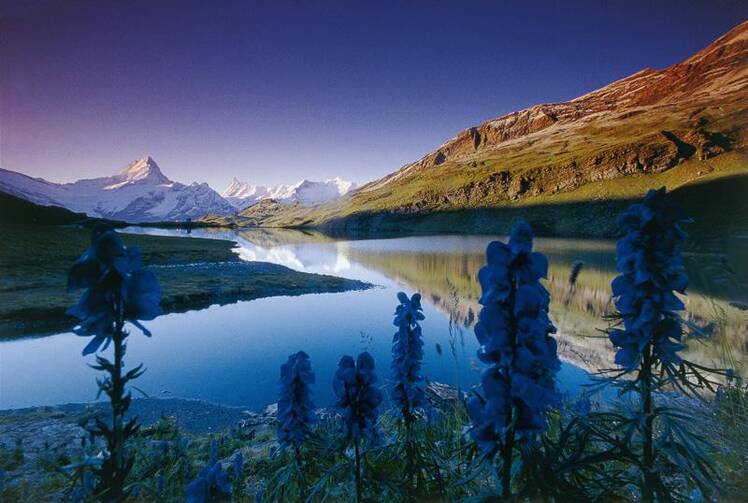For many years now, I’ve resolved to include in my Advent and Christmas reading Caryll Houselander’s The Reed of God, but the usual distractions have prevented me, until this year. It’s a simple, modest little book of meditations on Mary and the Incarnation and what it all means in our ordinary everyday lives. The mediation I read early this morning, on the unity of body and soul and the importance of the sensible environment, seems particularly pertinent in light of the imminent release of the pope’s encyclical.
Houselander writes:
Human nature—body and soul. That means so much more than the word 'flesh' conveys at first hearing. It means flesh and blood, nerves, the five senses, the sensitive soul, thought, feeling, reactions to other people and to environment—intellect, art, poetry, genius.
Although human beings smear everything they touch, they leave touches of beauty wherever they go, too: evidence that the senses receive their unique gifts of grace, wonder, joy, and gratitude because of the beauty that is their environment.
St. Thomas says that the Being of God is the cause of the beauty of all that is.
The Being of God, then, presses upon man. It is his environment. It sings to him in the winds, when he touches grass or water, he touches it with his fingers; he smells it in fields of hay and clover and in newly cut wood; he listens to it in the falling of the rain and the murmur of the sea. He tastes it in the food that he eats; he sees it in the flowers beneath his feet; he is clothed in it in silk and wool. Its measured beat in his own blood rocks him to sleep with the coming of darkness and wakens him with the light. He receives it in the sunlight like a sacrament that gives life.
Even without an embargoed copy of his encyclical in front of me, I am quite sure that our Pope Francis wants to impart upon us something of these same sentiments, so freshly articulated 70 years ago. Houselander, it seems, writing in the midst of a world at war, wanted her readers to notice how God nevertheless surrounds us, in and through our natural surroundings. However much we may smear all that we touch, the graces of creation are irrepressible and never surpassed; or as Hopkins put it, plumbing similar themes, “nature is never spent.” But Her ceaseless gifts should generate, not an attitude of license but of limitation, restraint, modesty, care. When fully comprehended, Nature gives us pause—yet only when we pause do we fully comprehend.
We Catholics and all people of good will would do well to pause as we prepare to “receive” this encyclical. Already, even without its having been promulgated, keyboards are clicking, arguments are being formulated, the usual alliances and oppositions are being forged. And yet, perhaps this encyclical is meant to interrupt our well intended chattering, much like Christmas is meant to; and perhaps, also like Christmas, we are meant to be interrupted through the means of the environment that surrounds us, what we taste and touch and smell and hear and feel every day—whether it be a sunrise on the plains, the fluttering of Aspen leaves in the winter wind, the happy babbling of a waking baby, or the edifying words on a page—all signs of the Word made flesh, and fresh.








